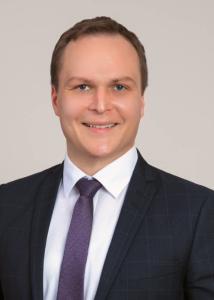📌 Together with worldwide KAS offices and their partners, the Konrad-Adenauer-Stiftung Multinational Development Policy Dialogue (MDPD) asked youth members who are engaged in EU funded programs or projects in Africa, Asia, Latin America about their perceptions of the European Union and its engagement in their countries. In short videos, young people portrayed their perceptions, expectations and wishes on the EU’s role in their country – answering two difficult questions: “Has the EU´s engagement triggered change in your country” and “what could the EU do differently in the future”.
🔎 The produced short videos focus on the thematic areas Participation + Democracy, Freedom + Security as well as Climate + Energy. Based on the video series, the insights presented in the series were discussed in a panel event in July 2022, covering the aforementioned thematic areas with selected Young Voices and European decision makers, in which both sides could exchange original ideas on EU policies in selected regions.
📲 The outcomes of this discussion were synthesized into a policy paper titled “The European Union and Global Youth – Looking for the Snowball Effect”. It contains testimonies from the participants of the Young Voices video series, as well as challenges the EU faces when engaging global youth, and a comprehensive set of policy recommendations to mitigate these issues.
This policy paper poses the following recommendations to EU Policy Makers:
The EU needs to engage with global youth.
By setting up Youth Sounding Boards in partner countries, the EU should draw on local, youth expertise and therewith substitute the efforts already undertaken by the existing Youth Sounding Board for International Partnerships. In addition to that, an extensive network of Youth Ambassadors should by created and solidified. Equipped with the necessary skills, these Youth Ambassadors would spearhead the efforts on a national level and be the focal points for the EU´s youth engagement on the ground. Finally, comprehensive links should be established between youth organizations and civil society in order to prevent duplication of efforts and more comprehensively tackle the challenges of the 21st century.
The EU needs to enable global youth.
By providing far-reaching training opportunities on the topic of project planning and the application for local small-scale programs the EU capacitates young people to put their own ideas into practice. This can be further enhanced through the creation of further ERASMUS Mundus Joint Masters and the increased sharing of best practices on the fulfilment of the UN Sustainable Development Goals.
The EU should guide global youth.
The EU needs to make information about its youth engagement, its functionality and the opportunities within and outside of the EU more easily accessible. This means both the creation of youth-friendly documents and information material, but also the enhancing the EU physical presence in partner countries and its accessibility for youth abroad. This paper proposes the creation of Youth Dialogue Hubs functioning as places of interaction, information and experiencing the EU first-hand.
---
📎Download the digital publication: tinyurl.com/2m3y5k7h
👉 FlipBook version: tinyurl.com/3t5pruup
🔎 Watch the full video series: tinyurl.com/yejfp8uu
---




